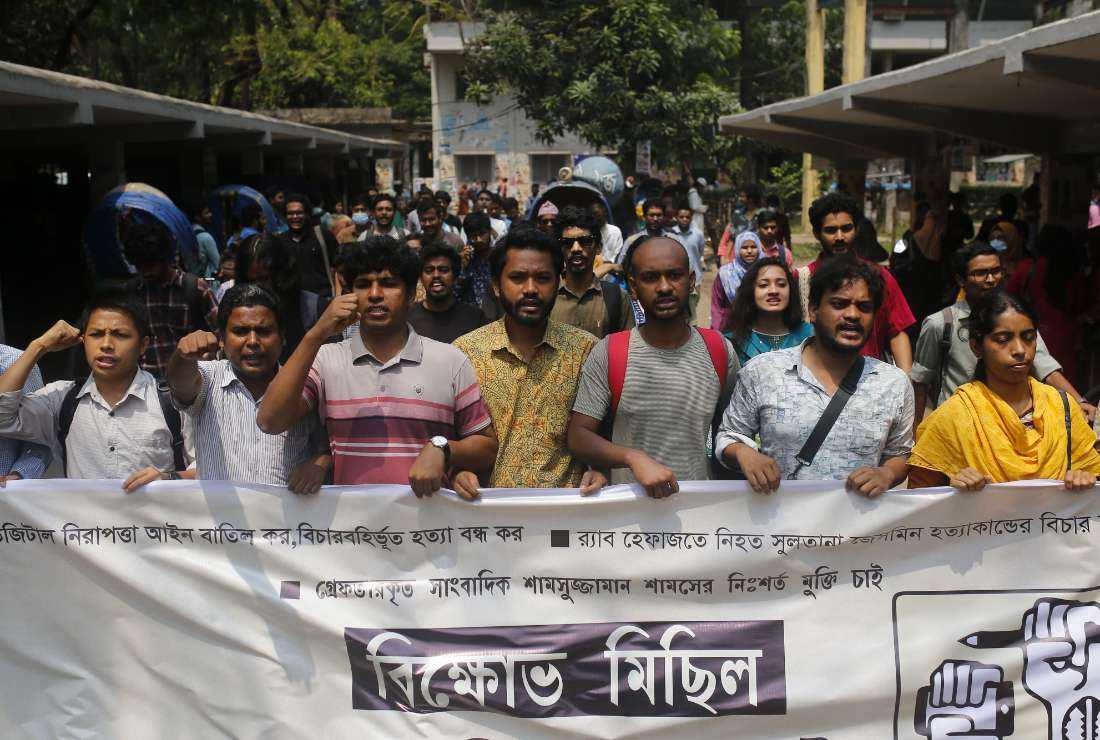
Students shout slogans during a protest demanding the release of journalist Shamsuzzaman Shams, who has been charged under the Digital Security Act, in Dhaka on March 30. (Photo: AFP)
Bangladesh's government said Monday it would overhaul controversial security laws the opposition says are being used to stifle dissent, but rights groups said the overhaul could result in the same "repressive features".
Opposition parties have accused Prime Minister Sheikh Hasina of using the 2018 Digital Security Act (DSA) to crack down on dissenting voices and have vowed to scrap it if they win elections slated for January.
Justice Minister Anisul Huq said Monday the cabinet had approved changes that include a reduction in punishments in a bid to "prevent some misuse and abuse".
"We have reduced the penal provisions," Huq told reporters.
The repeal was cautiously welcomed by the United States, which said it was glad for the "government's long-stated commitment to reform the law to protect freedom of expression".
Huq said the law's name would be changed to the Cyber Security Act and that the punishment for defamation would be changed from jail to a fine.
State Department spokesman Matthew Miller told reporters that the United States encouraged "Bangladesh to give all stakeholders an opportunity to review and provide input to the new draft Cyber Security Act to ensure it meets international standards."
Amnesty International said it welcomed the move to change the act, which it called "a draconian law which was weaponized by the ruling party and its affiliates to stifle dissent and thwart freedom of expression online".
But it also voiced caution, saying the new act should "not rehash the same repressive features".
Human Rights Watch has said the "vague and overly broad measures" of the DSA had been used to "harass and indefinitely detain" activists and journalists.
One study by the Centre for Governance Studies, a Bangladesh think tank, found that the law had been used to charge more than 1,500 people between January 2020 and September 15, 2021, including scores of journalists, teachers, politicians and students.
Bangladesh's next general election is due before the current parliament's term expires in January.
The opposition has called for Hasina to step down and for the polls to take place under a neutral caretaker government. Hasina has rejected the demand as unconstitutional.
Western governments have expressed concern over the political climate in Bangladesh, saying the ruling party dominates the legislature and runs it as virtually a rubber stamp.


